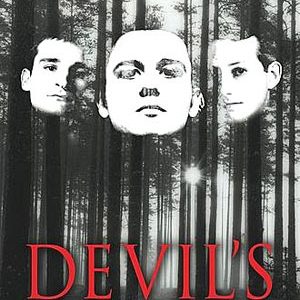calsfoundation@cals.org
Devil's Knot
Mara Leveritt’s 2002 book Devil’s Knot: The True Story of the West Memphis Three focuses on the facts of the 1993 murder of three eight-year-old boys in West Memphis (Crittenden County) and the controversial court case that followed. One of the teenagers of the so-called West Memphis Three convicted in the case was sentenced to death, while two others were condemned to life in jail without parole; the three were freed in 2011. The murders remained unsolved. The book depicts a bleak picture of small-town Arkansas in the 1990s, providing background for how, in the author’s view, this case assumed a level of hysteria that in many ways equaled the Salem Witch Trials. The book provoked a larger discussion about the nature of the trial and its evidentiary bias, while the subsequent movie offered a fictionalized—and some said oversimplified—account of the events.
Mara Leveritt, a contributing editor to the Arkansas Times, won Arkansas’s Booker Worthen Literary Prize for her book The Boys on the Tracks (1999) and would later receive the same award for Devil’s Knot. Devil’s Knot was followed in 2014 by Dark Spell: Surviving the Sentence (co-written with Jason Baldwin, one of the West Memphis Three), the second volume in a planned series called the Justice Knot trilogy. All three books focus on the death of young children, the effects of poverty, and what seemed to be the continuing failure of the Arkansas judicial system to uphold the democratic ideal of a fair trial for all citizens.
The book’s journalistic narrative does not solely focus on the crime itself but also sets up the political, economic, social, and historical context of the Mississippi Delta region where West Memphis is located. West Memphis is one of the poorest cities in one of the poorest counties in one of the three poorest states in the country. The footnotes to the book take up fifty-three pages of the 421-page book, and they are often as informative as the main narrative, especially for those who are somewhat familiar with the case.
The book covers some of the same material as the HBO Paradise Lost documentaries: Paradise Lost: The Child Murders at Robin Hood Hills (1996), Paradise Lost 2: Revelations (2000), and Paradise Lost 3: Purgatory (2011). The movie Devil’s Knot (2013)—a dramatized rather than documentary account of the crime, trial, and aftermath—was released after the three Paradise Lost HBO documentaries, and also following the documentary West of Memphis (2012), produced by Peter Jackson and Fran Walsh, and directed by Amy Berg.
Unlike the documentaries, Devil’s Knot was not filmed in Arkansas. The movie premiered internationally at the 2013 Toronto Film Festival and nationally at the Ron Robinson Theater in Little Rock (Pulaski County) in May 2014. For the viewers familiar with the Paradise Lost series of documentaries, which had an international fan base, the movie seemed oversimplified. Colin Firth plays Ron Lax (though the character was really an amalgam of Lax and his assistant, Glori Shettle), a private investigator from Memphis, Tennessee, and is the focal point of the movie, rather than the West Memphis Three. Reese Witherspoon plays Pamela Hobbs, the mother of murder victim Stevie Branch. Hobbs’s husband was the stepfather of Stevie Branch and was, at one time, a suspect in the homicide.
Thematically based upon Leveritt’s book, the Devil’s Knot movie begins with the disappearance of the three eight-year-old boys in 1993 and follows the subsequent arrest and trial of Damien Echols, Jason Baldwin, and Jessie Misskelley Jr. the following year—events thereafter are presented only in end-movie text. Directed by Atom Egoyan, the film presented a less controversial version of Leveritt’s book, choosing not to point fingers at possible culprits. The extras on the DVD release of Devil’s Knot contain interviews with the actors who portrayed the important figures in the trial and book. These actors professed to being interested in getting their characters “right” rather than leading the audience to discover the true murderer or murderers.
Jason Baldwin was an executive producer of the film and said that he hoped that the message of the West Memphis Three case would reach a larger audience as a fictional movie. While many film reviewers criticized the choice to present such a visually well-documented case as a feature film rather than a documentary, some argued that Firth and Witherspoon made the topic more palatable for a broader audience.
For additional information:
“Devil’s Knot.” Internet Movie Database. http://www.imdb.com/title/tt0804463/?ref_=nv_sr_1 (accessed January 3, 2026).
Leveritt, Mara. Devil’s Knot: The True Story of the West Memphis Three. New York: Atria, 2002.
Natasha R. Margulis
Arkansas State University










Comments
No comments on this entry yet.